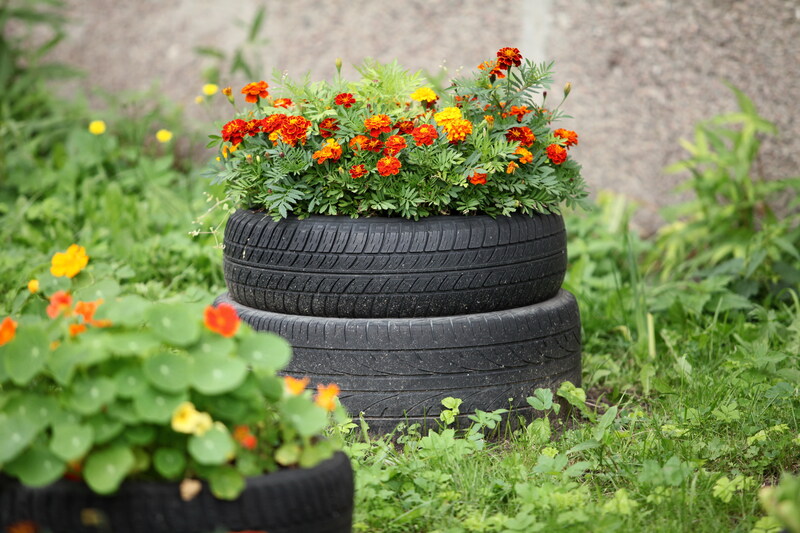From Garbage to Green: How London is Tackling Waste Disposal and Promoting Sustainability
Posted on 06/09/2024
London, one of the most populous cities in the world, generates an enormous amount of waste every day. With its bustling streets and busy lifestyle, it's no surprise that waste disposal has been a major challenge for the city. However, in recent years, London has taken major steps towards promoting sustainability and reducing the impact of waste on the environment. From introducing innovative waste management strategies to encouraging sustainable practices among its citizens, London is leading the way in turning garbage into green.
Waste Disposal Scenario in London
In 2019, London generated over 22 million tons of waste, which equates to almost 4.2 kilograms of waste per person per day. This includes household waste as well as commercial and industrial waste. This staggering amount of waste poses a significant threat to the environment and public health if not managed properly.
Traditionally, most of London's waste was sent to landfills or incinerators, which contributed to air pollution and greenhouse gas emissions. Landfills also generate methane, a potent greenhouse gas that contributes to climate change. In addition, these methods are not sustainable in the long run as they take up valuable land space and have finite capacity.

Tackling Waste with Sustainable Solutions
To address these challenges and promote sustainability, the city of London has implemented a range of initiatives to manage its waste effectively. One such initiative is the introduction of recycling schemes across the city. Citizens are encouraged to separate their waste into different categories such as paper, plastic, glass, and metal for recycling. This not only reduces the amount of waste sent to landfills but also conserves natural resources by reducing the need for raw materials.
Furthermore, London has also introduced a zero-waste policy for certain businesses where they are required to recycle or compost all their waste instead of sending it to landfills. This has led to a significant reduction in commercial waste and an increase in sustainable practices among businesses.
Innovative Waste Management Strategies
London has also taken a technological approach to waste management with the introduction of waste-to-energy plants. These plants use advanced technologies to convert non-recyclable waste into energy, such as electricity and heat. This not only reduces the amount of waste sent to landfills but also provides a sustainable source of energy for the city.
Another innovative strategy adopted by London is the use of biodegradable bags for food waste collection. These bags are made from plant-based materials and decompose along with the food waste, making it easier to compost them.
Encouraging Citizen Participation
Apart from government initiatives, London has also been promoting sustainability by encouraging citizen participation. Various educational and awareness programs have been conducted to inform citizens about the importance of proper waste management and the impact of their actions on the environment.
To further encourage citizens, London has introduced incentives for recycling and composting, such as reduced council tax for households that have subscribed to green waste collection services. This has led to increased participation in sustainable practices among citizens and a reduction in overall waste generation.
Pros and Cons of Sustainable Waste Management
While London's efforts towards sustainable waste management are commendable, there are still some challenges that need to be addressed. One major issue is the lack of infrastructure and resources in certain areas, resulting in inadequate waste management facilities. This makes it difficult for these areas to keep up with recycling and composting initiatives.
In addition, while waste-to-energy plants are a more sustainable alternative to landfills, they still emit harmful pollutants into the environment. Furthermore, promoting sustainability may come at a higher cost initially, which can be a challenge for businesses operating on tight budgets.

Takeaways and Tips for Promoting Sustainability
Despite these challenges, there are valuable takeaways from London's efforts that can be applied in other cities around the world. First and foremost, education and awareness programs play a crucial role in promoting sustainable practices among citizens. Governments should also invest in the necessary infrastructure and resources to support sustainable waste management initiatives. Furthermore, incentives can be an effective tool in encouraging citizens and businesses to participate in sustainable practices.
Conclusion
In conclusion, London's journey from garbage to green is a testament to its commitment towards sustainability. The city has made significant progress in reducing waste generation, promoting recycling and composting, and adopting innovative waste management strategies. While there are still some challenges that need to be addressed, London serves as an excellent example for other cities looking to tackle their waste disposal problems and promote sustainability. With continued efforts and participation from citizens, we can all work towards turning garbage into green for a more sustainable future.
Latest Posts
Kennington Party Venues: The Best Options
Life in Kennington: Insider Insights
Maximize Returns: Kennington Real Estate
Selling Your Property in Kennington
The Impact of Urban Green Spaces on Environmental Sustainability in Developing Countries














